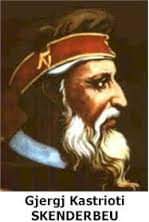While I provide certain articles free of charge, I also have a selection that requires payment to sustain my livelihood and continue delivering valuable content.
The Albanian government faces criticism for excluding Kosovo’s leadership from a ceremony honouring former US President Bill Clinton, raising questions about regional unity.
JUL 4
Tirana, Albania – Former US President Bill Clinton was awarded the Great Star of Public Gratitude medal by Albanian Prime Minister Edi Rama during his visit to Tirana on Monday. However, the event was overshadowed by criticism directed towards the Albanian government for not inviting the leadership of Kosovo, sparking controversy and disappointment among observers.
Clinton, widely revered in Kosovo and Albania for his role in ending the Kosovo-Serbia war and his support for Kosovar Albanians, received the prestigious honour in a ceremony held at the Prime Minister’s Office. The event was attended by diplomats, politicians, media representatives, and citizens.
Prime Minister Rama emphasized the significance of Clinton’s presence, linking it to the region’s troubled past and America’s renewed commitment to peace. Previous recipients of the medal include former German Chancellor Angela Merkel and former European Commission President Jean-Claude Juncker.
Rama credited Clinton with making the liberation of Kosovo and the Balkans possible, highlighting his efforts during the conflict and the subsequent return of half a million Kosovar refugees who found temporary refuge in Albania. Rama also praised Clinton’s famous 1999 speech, where he announced US and NATO air strikes against Serbian forces responsible for the brutalities in Kosovo, calling it a pivotal moment for the region’s future.
However, the absence of Kosovo’s leadership from the event raised eyebrows and drew strong criticism from various quarters. The decision not to invite representatives from Kosovo has been interpreted as a snub and a missed opportunity to foster regional cooperation and unity.
During his speech, Clinton expressed concerns about the ongoing tensions in northern Kosovo and urged the Kosovar government to showcase an inclusive future. He referenced the recent elections held in the four northern municipalities, which resulted in the election of ethnic Albanian mayors. Clinton criticized the boycott of the vote and called for an end to the political impasse, referring to it as “nonsense.”
Despite the appreciation shown towards Clinton by Albanian citizens, the absence of Kosovo’s leadership at the ceremony overshadowed the event’s positive aspects. Critics argue that the decision not to invite Kosovo officials undermines the spirit of unity and cooperation in the region and sends a discouraging message to the Kosovar people.
The exclusion of Kosovo’s leadership raises questions about the Albanian government’s commitment to fostering stronger ties and addressing the pressing issues facing the Balkan region. It also highlights the need for transparent and inclusive dialogue between all parties involved to ensure stability, reconciliation, and progress.
As observers continue to evaluate the significance of Clinton’s visit and the implications of the Albanian government’s exclusion of Kosovo’s leadership, the hope for renewed efforts towards unity and cooperation in the Balkans remains uncertain.
In a region that has faced decades of political turmoil and ethnic tensions, it is imperative for all stakeholders to work together towards lasting peace and stability. The Albanian government’s decision not to invite the leadership of Kosovo raises concerns about the commitment to this goal and risks further straining relations between the two neighbouring nations.
In 2008, Kosovo officially declared its independence from Serbia, marking the culmination of a process that began in 1999 with NATO’s intervention to halt the ethnic cleansing of Albanians under Slobodan Milosevic’s regime. It is worth noting that Aleksandar Vucic, the current President of Serbia, previously held the position of information and propaganda minister under Milosevic. In this role, Vucic was responsible for justifying the war crimes, crimes against humanity, and acts of genocide committed by the Milosevic regime in Bosnia, Croatia, and Kosovo.
Despite claiming to be moderate, loyalists of Milosevic have consistently employed Kosovan Serbs to undermine Kosovo’s constitutional and territorial integrity. They embrace Milosevic’s notorious slogan, “KosovoJe Srce Serbije” (English: Kosovo is the Heart of Serbia), which aims to eradicate Albanians entirely from the region. This initiative drew international condemnation due to its grave criminal nature, leading to military intervention by the international community.


Shënim:
Redaksia, diplomacia. dk nuk e merr përgjegjësinë për pikëpamjet e autorit në shkrimin e botuar!
Respekt!
